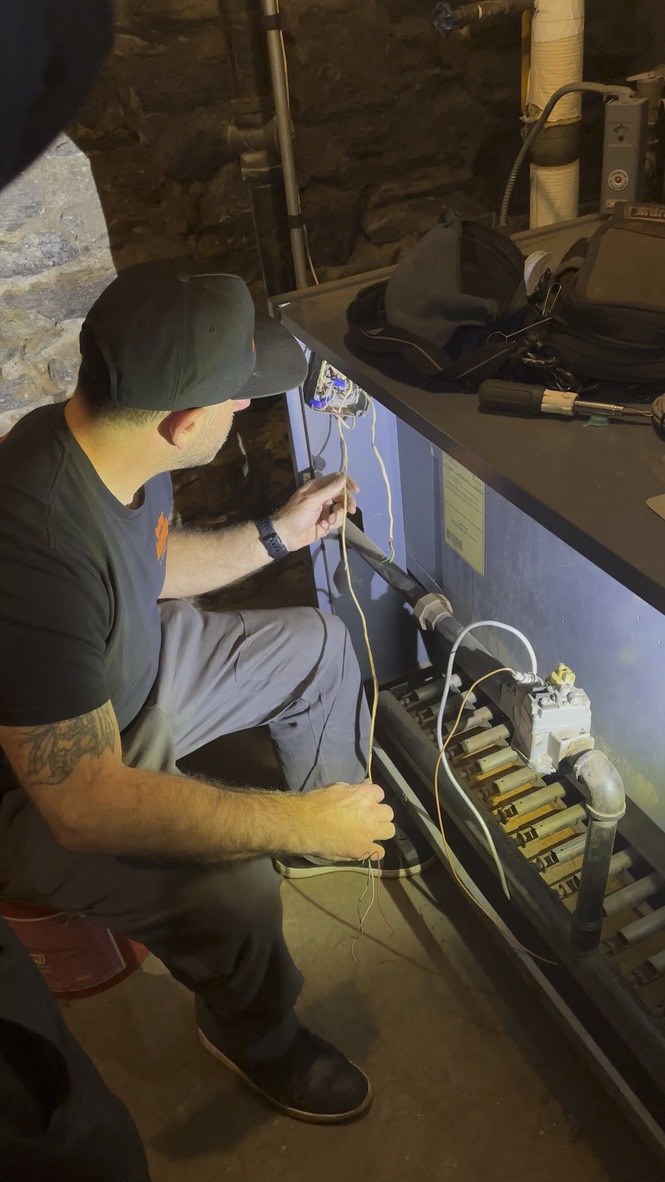Boilers are a significant investment, and like any important asset, they require proper care and maintenance to ensure they last as long as possible. Extending the lifespan of your boiler not only saves you money on replacements but also ensures consistent, efficient heating for your home or business. In this blog, we’ll explore the key steps you can take to maximize the longevity of your boiler and keep it running smoothly for years to come.
Regular Maintenance Is Key
The most important factor in extending the life of your boiler is regular maintenance. Just like any complex system, your boiler needs routine check-ups to ensure all its components are functioning correctly and efficiently. Regular maintenance helps to identify potential issues early on, allowing you to address them before they turn into costly repairs or cause significant damage.
During a maintenance visit, a qualified technician will inspect your boiler, clean critical components, and make any necessary adjustments to improve its performance. This includes checking the boiler’s pressure, testing safety controls, and ensuring the burners and heat exchanger are in good condition.
Annual maintenance is recommended for most boilers, but older systems or those in constant use may benefit from more frequent check-ups. By keeping up with regular maintenance, you can prevent minor problems from escalating and keep your boiler running smoothly for a longer period.
Monitor and Maintain Water Quality
Water quality plays a crucial role in the performance and longevity of your boiler. Poor water quality, such as water that contains too much hardness, can lead to scale build-up inside the boiler. This scale acts as an insulator, reducing the boiler’s efficiency and forcing it to work harder, which can lead to overheating and premature wear.
To prevent scale build-up and other water-related issues, it’s essential to regularly check and maintain the water quality in your boiler system. This includes testing for pH levels, hardness, and other impurities that could harm your system. If necessary, you can use water softeners, descalers, or chemical treatments to maintain optimal water quality and protect your boiler’s internal components.
In addition, flushing your boiler periodically can help remove any sediment or debris that may have accumulated over time. This simple task can greatly enhance your boiler’s efficiency and longevity by ensuring clean water flows through the system.
Install a Water Treatment System
For boilers that operate in areas with particularly hard water or other water quality issues, installing a water treatment system is a wise investment. A water treatment system can significantly reduce the risk of scale build-up, corrosion, and other problems caused by poor water quality. By treating the water before it enters the boiler, you protect your system’s components and ensure optimal performance.
There are various types of water treatment systems available, including water softeners, reverse osmosis systems, and chemical dosing systems. A qualified technician can help you determine the best option for your specific boiler system and water conditions.
Address Leaks and Repairs Promptly
Even minor leaks or issues with your boiler can lead to significant damage if left unaddressed. Leaks not only waste water and energy but can also lead to corrosion, rust, and other problems that shorten the lifespan of your boiler.
If you notice any signs of a leak, such as puddles around the boiler, drops in system pressure, or unusual noises, it’s important to have the issue inspected and repaired as soon as possible. Prompt attention to leaks and other problems can prevent further damage and help extend the life of your boiler.
Upgrade Components When Necessary
Over time, certain components of your boiler may wear out or become outdated, affecting the overall performance and efficiency of the system. Upgrading these components, such as the burners, controls, or even the boiler itself, can help improve efficiency and extend the lifespan of your system.
Modern boilers and components are designed with energy efficiency and durability in mind, making them a worthwhile investment for the long-term health of your system. If your boiler is more than 15-20 years old, it may be time to consider upgrading to a newer, more efficient model.
Implement Preventative Maintenance Plans
Preventative maintenance plans are an excellent way to ensure your boiler receives the care it needs to operate efficiently and last as long as possible. These plans typically include regular maintenance visits, detailed inspections, and priority service in the event of an emergency.
By enrolling in a preventative maintenance plan, you can stay ahead of potential issues and keep your boiler in top condition year-round. These plans are designed to give you peace of mind and protect your investment by ensuring your boiler is always well-maintained.


Comments are closed